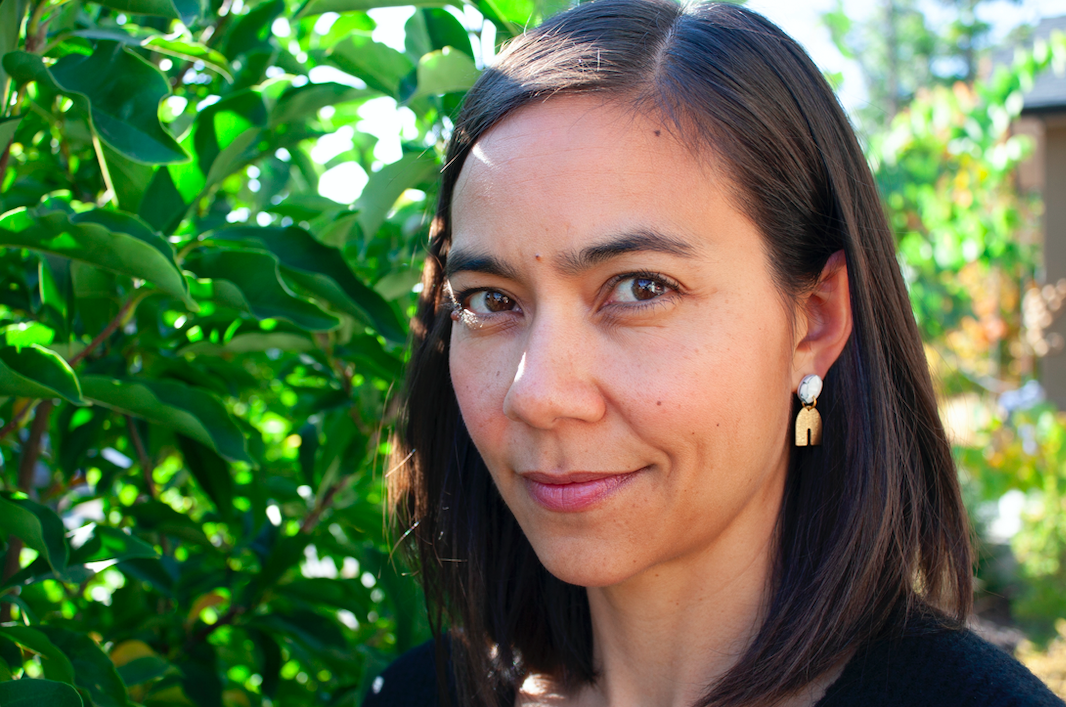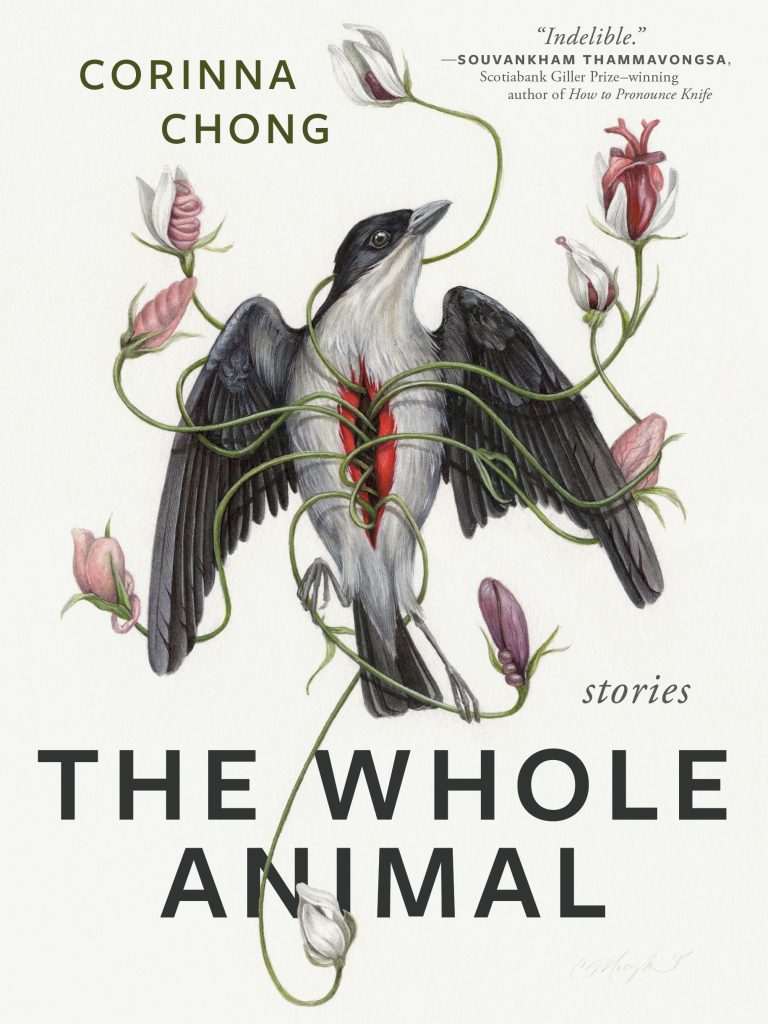
The Whole Animal with Corinna Chong
By Kimberly Taylor, April 3 2023—
The University of Calgary alumni and novelist Corinna Chong has a collection of short stories coming out on April 11 with Arsenal Pulp Press, a Vancouver-based publisher. The Whole Animal has thirteen unconnected short stories and explores complex themes of disconnection from the self, self-alienation, coming of age — especially for girls and women — and motherhood.
“I think animals figure prominently throughout the collection, they appear sporadically as important metaphors, a reflection of the struggles that the characters are going through,” said Chong in an interview with the Gauntlet. “Also, I think that each of the stories became its own living thing through the process of writing.
“Lastly, I think the word “whole” is an interesting word for this title because I think there’s a lot of irony in it when you read the stories, most of the characters are not whole, they are very fragmented and disconnected from themselves, so I thought that was fitting in that way as well thematically for the collection.”
The epigraph gives readers clues about how to approach the stories within the collection. Chong came across the work of Sally Mann as a student of both creative writing and photography at the U of C.
“The tone of her photographs matches the tone of the stories. And I think she deals in her photographs with similar themes,” said Chong. “I want to cultivate a sense of ambiguity because I think that is more true to the very complex experiences that my characters are having.
“Ambiguity is an intentional complexity. I want there to be questions at the end, whether the characters have resolved their struggles or not, or have come to terms with their internal conflicts.”
The stories were written over the last 15 years with some of them being worked on and reworked throughout that period.
“Each of them was pursued as its own thing, so they all have a different inspiration, all of them come out of ideas that I can’t quite make sense of with regard to my own life. Characters will be inspired by people I know, or things that I’m going through, or things that I hear, and then the story takes shape from there,” said Chong. “A lot of these stories began some kind of creative writing prompt or a single sentence. I think about a sentence that is really interesting and raises questions and that then suggests to me a character with a particular set of conflicts and then I grow it from there.”
The most personal story for Chong is “Porcelain Legs.”
“That one reflects an important part of my own experience coming of age as well as a mixed-race person,” she said.
She feels that “Love/Cream/Heat” is the strongest story in terms of writing. “Zora, in the Whirl” took the longest write with many revisions and reworkings to get the story to where it is in the collection. Chong said that “Kids in Kindergarten” was the fastest but most difficult to write emotionally as she “felt so horrible for this character.”
The collection opens with the title story and explores the layers of disconnection the unnamed narrator feels from herself, her partner, her neighbourhood, and from history. Many of the narrators are left unnamed and somewhat ambiguous in their identity. This ambiguity is accompanied by strong embodied details and evocative imagery as the characters navigate the stories. For example, in “Thieves” the unnamed narrator says “touching the handle always left the dirty smell of iron on my fingers,” drawing us into her experience.
Loss is also a theme running through the collection. In “Butter Buns,” a teenage boy and his mother’s relationship has lost some of the ease it once had before his mother began bodybuilding, and before his parents divorced. He is confused by the loss and doesn’t know how to regain closeness with his mother. In “Kids in Kindergarten” pregnancy loss is dealt with in a quiet, yet grotesque way that evokes the actual experience of miscarriage. The loss of safety is addressed in “the snare. the arm. the guinea pig. the bottle. the bus. the night” and “Zora, in the Whirl.”
These losses cause disconnection for the characters. This disconnection and inability to make sense of themselves, their experiences and their relationships, is the main theme of the collection. In “The Whole Animal” the narrator is unable to tell what is real and what is a dream. The photographer in “Fixer” is disconnected from her work, and unable to fix it, even with all her knowledge and skills. Alma is unable to connect with the boy she’s assigned to work with in “Wolf-Boy Saturday” and is disconnected from the course of her professional and personal life.
With all these stories there are no easy, obvious answers. Instead, there is an empathetic examination of the struggle to make sense of the absurdity of life. The whole human animal is displayed in Chong’s work: the cruelty and the compassion, the hope and the hopelessness, the awareness and the awkwardness. The collection is an invitation to reflect on the ambiguous experiences of our own lives beautifully written by a talented and committed writer.
In her final remarks, Chong says she hopes the stories will resonate with people.
“I hope people will reflect on their own similar struggles in some way and be able to suss out how many layers there are to deal with.”

